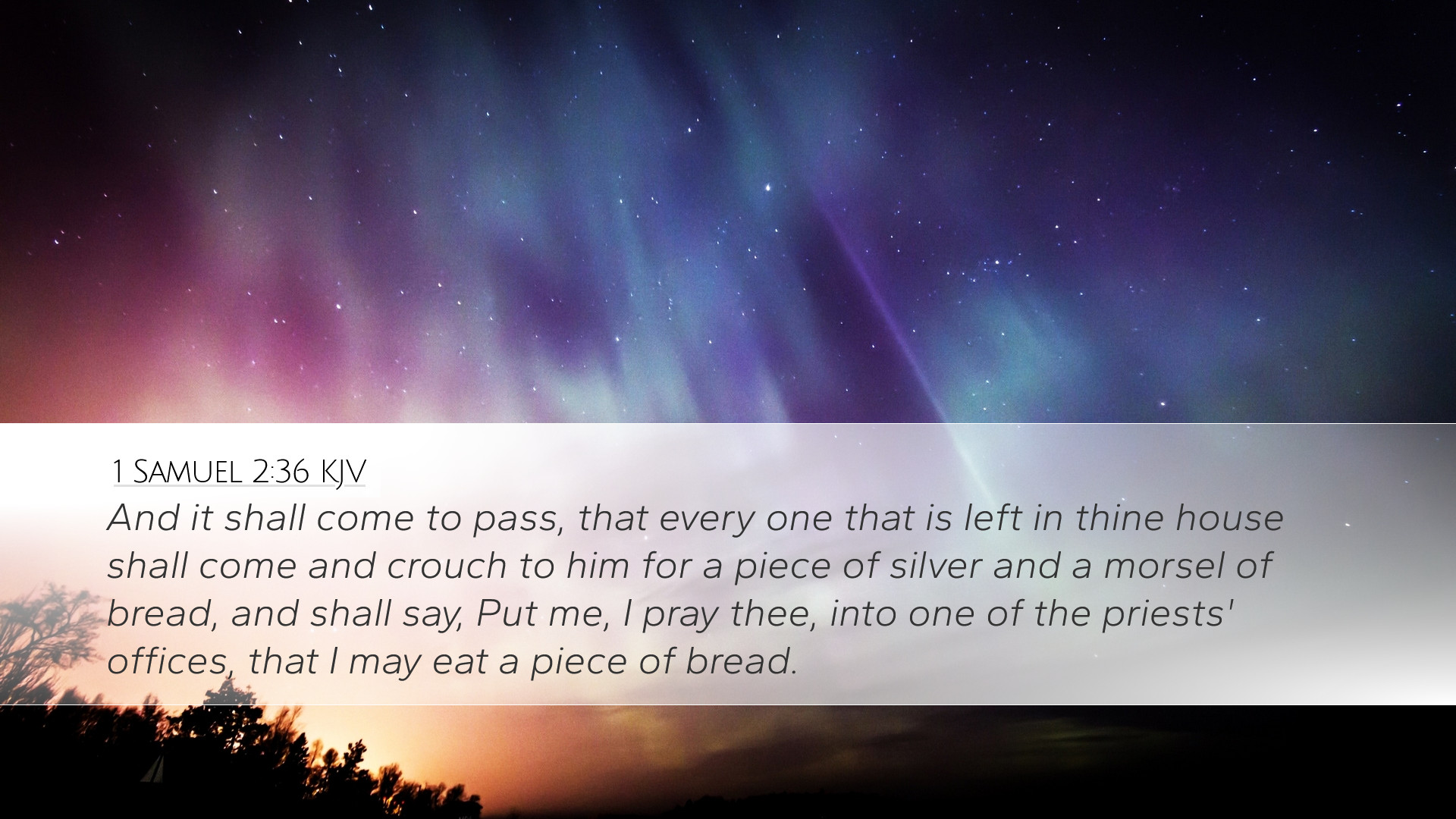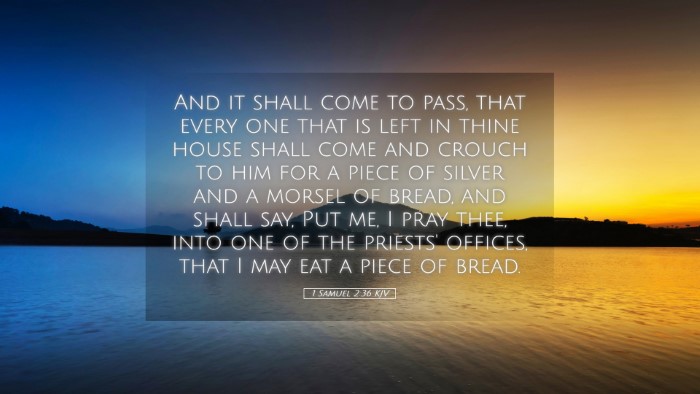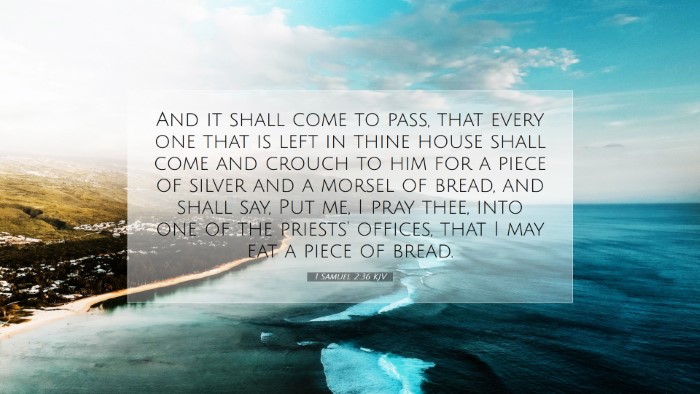Commentary on 1 Samuel 2:36
Verse Text: "And it shall come to pass, that every one that is left in thine house shall come and crouch to him for a piece of silver and a morsel of bread, and shall say, Put me, I pray thee, into one of the priest's offices, that I may eat a piece of bread."
Introduction to the Context
This verse is part of a larger narrative concerning the judgment on the house of Eli, the high priest, and his sons, Hophni and Phinehas. The context reveals the consequences of Eli's failure to restrain his sons and the larger implications of God's judgment on those who lead His people. This commentary seeks to unravel the depths of this moment by reflecting on insights from noted biblical commentators.
Key Themes and Insights
1. Divine Judgment
Matthew Henry emphasizes that this verse reflects the severity of God's judgment. Eli's household is to be stripped of its honor and influence. The prophet's declaration foretells a grim future where those from Eli's lineage will find themselves in servile and desperate conditions. The imagery of kneeling for bread illustrates a loss of status and highlights the consequences of sin and neglect of God's commandments.
2. The Fate of Eli's House
Albert Barnes points out that this prophecy is not merely about physical sustenance but also speaks to the spiritual desolation that accompanies abandoning divine directives. Those left of Eli’s family will find themselves seeking helpers among the priests, indicating a transition from nobility to servitude. This reflects the biblical principle that spiritual defection leads to societal and personal degradation.
3. The Role of the Priesthood
Adam Clarke notes that the priesthood, which was meant to be a source of guidance and sustenance, becomes a target of desperation in this context. The priestly office, once a revered position guided by God’s command, becomes something one must plead for. This paradigm shift underlines the critical nature of faithfulness in leadership—how spiritual leaders are to provide life and not just ordinances.
4. Human Dependence on Divine Grace
This verse encapsulates the human condition of dependency on divine provision. The act of “crouching for a piece of silver and a morsel of bread” suggests not only a material need but also a profound spiritual longing. Henry's commentary posits that it serves as an illustration of humanity's need for grace—a reminder that in our low estate, we must turn to God and His ordained offices for sustenance.
5. The Role of Intercession
Barnes indicates that this plea for inclusion in priestly duties signifies a recognition of the importance of intercession. In desperate times, the remnants of Eli’s household seek to connect with the procession of God's grace that the priesthood represents. This connection emphasizes the need for continuous intercession and the redemptive nature of God’s provision through His servants.
Theological Reflections
This verse serves as a theological fulcrum teaching us about:
- The Consequences of Leadership Failures: Leaders in spiritual domains bear the weight of their actions, which can lead entire families or communities into disgrace.
- The Cost of Disobedience: Resisting divine guidance leads to societal chaos and personal anguish; faithful adherence is crucial.
- The Hope within Judgment: Even in divine judgment, there remains an opportunity for repentance and return to God’s grace, which aligns with the larger narrative of salvation history.
Practical Applications
This verse is not merely historical; it carries applicable lessons for today’s pastors, students of theology, and all believers:
- Pastoral Responsibility: Recognize the critical role of shepherding the flock. A faithful minister must lead in humility and obedience to God’s word to avoid dire consequences.
- Emphasizing Intercession: Cultivating a lifestyle of prayer and intercession is essential, both for personal lives and collectively as congregations.
- Grounding in Grace: Remind congregations about the importance of seeking sustenance—spiritual and physical—from God alone, taking care to recognize the provision still available despite past failures.
Conclusion
The stark reality described in 1 Samuel 2:36 reflects the consequence of spiritual neglect and the vital need for faithful leadership under God’s authority. Through the combination of insights from Matthew Henry, Albert Barnes, and Adam Clarke, we see a multifaceted understanding of this scripture that warns, instructs, and ultimately offers hope. May this commentary enrich the understanding and application of Scripture for all engaged in the pursuit of holiness and leadership in the faith community.


